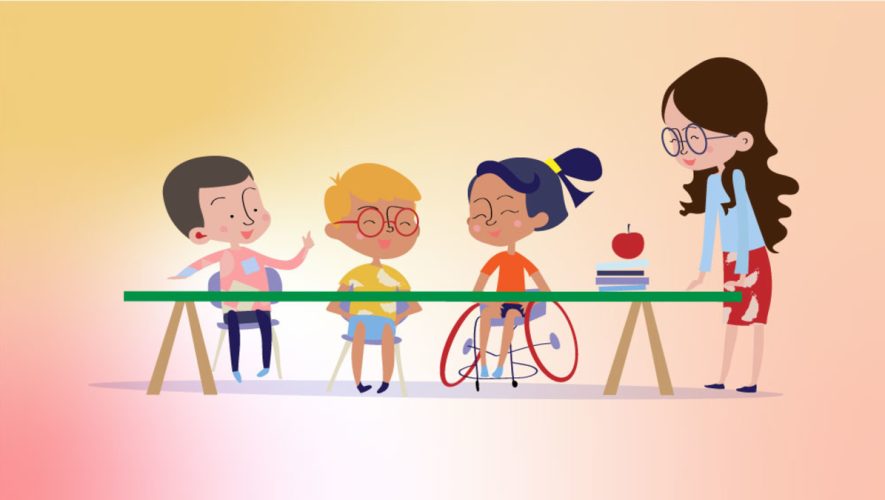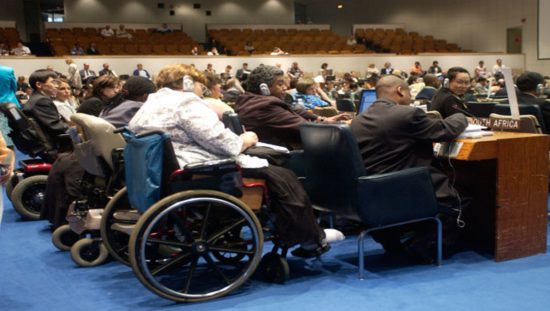Inclusive education is a new concept; a few schools are striving to create an inclusive environment through experimentation with various approaches. These approaches include establishing new inclusive schools; giving access to children with disabilities to existing schools; persuading children without disabilities to join special education institutions; keeping children with special needs within regular school although in separate classrooms; and supporting schools with multi-grade inclusive classrooms.
Most schools in Pakistan are crowded and poorly equipped. The pedagogical methods applied in mainstream, special and inclusive schools are largely copying and memorizing. The teaching– learning process addresses the individual learning needs of children in a limited way, and there is little scope for creativity or critical thinking. Students are expected to obey the teacher. There are some schools that still practice corporal punishment.
Inclusive schools that demonstrate good practices in Pakistan are restricted to big cities in the private sector. Most are not accessible to children with disabilities living in remote or rural areas. Special education support is usually not available to disabled children in rural areas. Parents are not willing to send their challenged children to school, as they fear that they will be stigmatized or that their children will not be able to keep up with the class. In some places, school directors or teachers refuse to accept a child with moderate disability for these types of reasons. Distance and other problems related to commuting to school add to the difficulties for these children.
Steps taken to Promote Inclusive Education
However, the government of Pakistan has taken some serious steps to promote inclusive education and has succeeded to a greater extent. These steps include;
- Collaboration between Ministry of Education (FDE), Ministry of Social Welfare and Special Education, IDP Norway and Sightsavers International.
- The initiative is based on UN Conventions, the Constitution of the Islamic Republic of Pakistan and the Islamabad Declaration on Inclusive Education.
- Initial steps in the development of a support system for children with special educational needs (including children with disabilities)
- Awareness programs have been initiated towards education authorities, communities, schools and parents
- Extensive teacher training.
- 16 government primary schools divided into 4 school clusters in Islamabad.
- 4 government schools (will soon be expanded to 6 schools) in Quetta.
- These 20 schools are moving towards inclusion as they step-by-step welcome all the children in the surrounding communities.
- Child mapping in the communities surrounding the 20 pilot schools seeking children who are out of school, and finding school placement.
Milestones of Inclusive Education in Pakistan
On its way to inclusive education, different milestones that Pakistan has achieved individually or in collaboration with UN are as under;
- Constitution of the Islamic Republic of Pakistan (1947)
- UN Convention on Human Rights (1948)
- UN Convention against Discrimination in Education (1960)
- UN Declaration on the Rights of Mentally Retarded Persons (1971)
- UN Declaration on the Rights of Disabled Persons (1975)
- World Programme of Action concerning Disabled Persons (1982)
- UN Convention on the Rights of the Child (1989)
- Principles for the Protection of Persons with Mental Illness and the Improvement of Mental Health Care (1991)
- United Nations Standard Rules on the Equalization of Opportunities for Persons with Disabilities (1993)
- Equalization of Opportunities for Persons with Disabilities (1997)
- UN Worst Form of Child labor Convention (1999)
- EFA Process – Jomtien (1990), Salamanca (1994) and Dakar (2000)
- Millennium Development Goals (MDG) (2000)
- Islamabad Declaration on Inclusive Education (2004)
- UN Convention on the Rights of Persons with Disabilities (2006)
- Education Policy (2009)
OTHER RELATED POSTS



